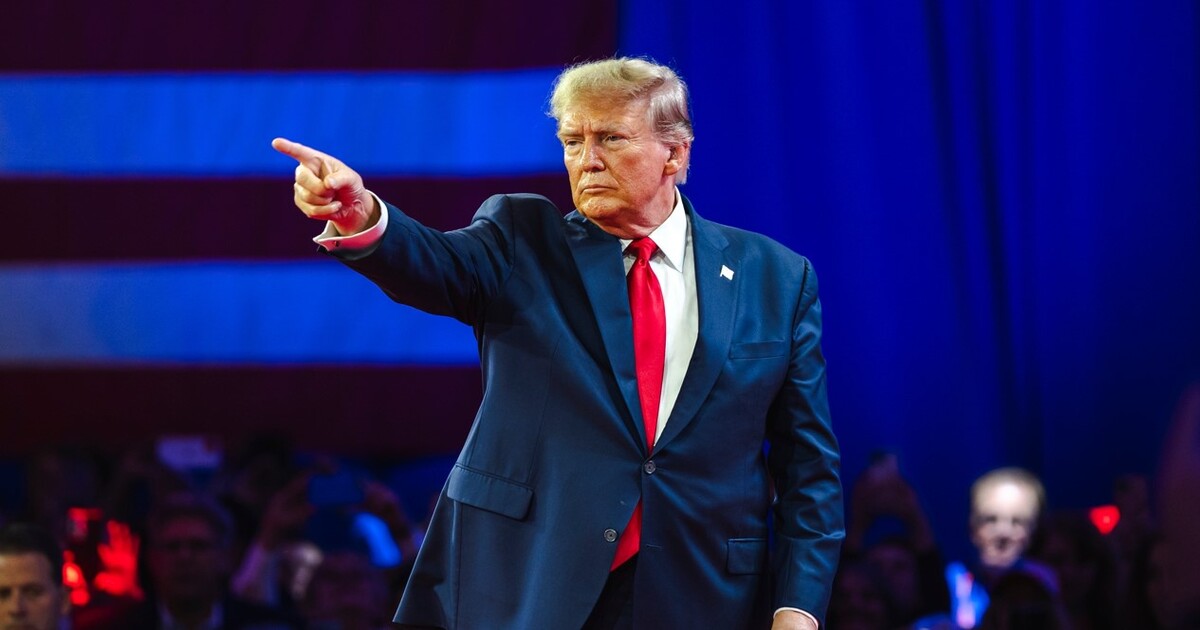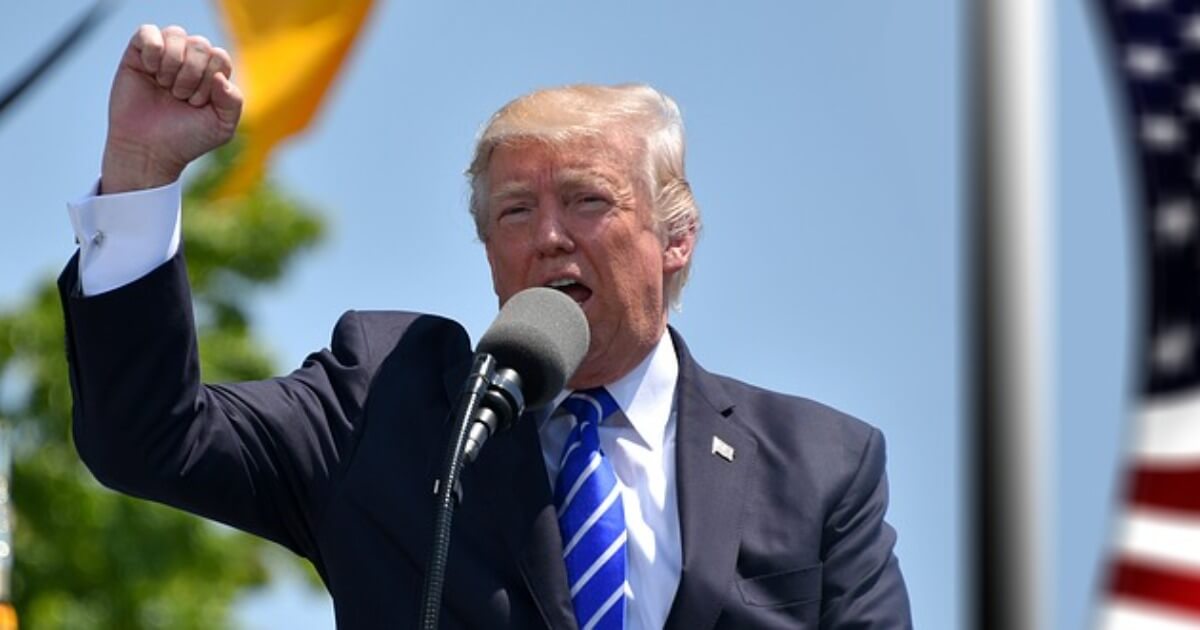Trump and Caesar: Two Men Above the Law
In their ruthless pursuit of power and self-aggrandizement, both Caesar and Trump run roughshod over laws and norms.
November 1, 2020

Editor’s note: This is a re-posting of a 2020 article with bracketed notes inserted to update it.
(To read Part 1, click here | For Part 3, click here | For Part 4, click here)
In their extraordinary appetites, extraordinary ambition and extraordinary rise to power, both Julius Caesar and Donald Trump exemplify what the ancient world called the “great-souled” man.
The ancient Greek philosopher Aristotle was the first to describe the “great-souled man.” For Aristotle, to be “great-souled” was the highest virtue.
Cicero’s doubts
Cicero, writing centuries later, was able to observe ambitious men like Caesar and Pompey and Sulla up close in action. In contrast to Aristotle, he was not so sure that this was the highest virtue.
Cicero considered the driving ambition of the Caesarian type to be reckless. In his view, it was not adequately tempered by the virtue of justice.
In their ruthless pursuit of power and self-aggrandizement, we see in both Caesar and Trump a willingness to run roughshod over laws and norms.
Caesar professed to respect the rights and privileges of the tribunes, who were the common people’s representatives in Roman politics. In fact, defending the prerogatives of tribunes was his nominal reason for marching an army across the Rubicon into Italy — in defiance of the Senate.
How Caesar constantly bent the rules
However, when it suited Caesar’s political purposes (e.g., in raiding the public treasury after occupying Rome), he was perfectly willing to defy and manhandle the tribunes himself.
When push came to shove, he violated sacred tradition by entering the city of Rome under arms. He defied edicts from the Senate and in other ways placed himself above and outside the law.
Trump’s way of being above the law
Although Trump ran in 2016 on a supposed anti-corruption platform (“drain the swamp”), the Trump campaign and the Trump administration have been mired in scandal.
Close associates of Trump’s have already been found guilty of tax evasion, bank fraud, lying to Congress, lying to federal investigators, campaign finance violations and witness tampering.
[2024 update: Trump himself is now embroiled in multiple civil and criminal lawsuits. He has already been found guilty of 34 felony counts of falsifying business records to hide payments made to a porn star during the 2016 election campaign.
Lawsuits still in progress concern, among other topics, Trump’s engaging in a conspiracy to subvert the 2020 election and his hoarding of classified documents that belong in the National Archives.]
Trump himself is clearly setting the (un)ethical tone here. As a businessman, prior to assuming the presidency, Trump perfected the art of reneging on contracts and stiffing contractors.
He regularly lied to investors and creditors about his assets and income. U.S. banks considered him such a credit risk in the 1990s that they cut him off, driving him into the arms of Germany’s Deutsche Bank, whose Moscow branch also maintained shadowy operations is Russia.
Trump’s taxes
Recent investigations show outright fraud in Trump’s older tax reporting. Not surprisingly, in 2016 Trump became the first major party nominee for President in recent memory to refuse to unseal his tax returns.
As candidate and then as President, Trump has repeatedly shown himself willing to accept and even solicit foreign help in U.S. elections, in direct violation of U.S. election law.
For attempting to bribe and bully the Ukrainian government into investigating a political rival, only the most egregious example, he was impeached — but the Senate declined to convict.
[2024 update: Sadly, this is no longer the most egregious example of Trump’s political malfeasance in the White House. In January of 2021, Trump sent a mob of supporters to storm the U.S. Capitol and try to physically prevent Congress from certifying the 2020 election.
Several died in and after the mob action. Trump was impeached a second time, and again the Senate failed to muster the two-thirds majority required to convict.]
Trump versus the U.S. Constitution
Even more serious: By instructing administration officials to defy Congressional subpoenas, Trump is compromising the legislative branch’s constitutional power of oversight.
Even after decades of creeping increases in executive power, such a move by the executive is breathtakingly bold and signals utter disregard for constitutional checks and balances. For this too, Trump was impeached.
As for the judicial branch: No stranger to lawsuits, Mr. Trump has long held the court system in contempt. As President, Trump has not sought a direct confrontation with the federal courts.
But in collaboration with Senate Republicans, he has been busy packing the judiciary with candidates who are ideological and sometimes absurdly under-qualified or otherwise deemed unfit by the American Bar Association. He is presumably counting on the judiciary to become more compliant over time.
Declaring war on the press
And Trump has declared open war on the press, the traditional “fourth estate” of U.S. politics, all the while entering into a symbiotic relationship with the notoriously right-wing Fox News channel.
Trump even went as far as suggesting the creation of a state-run media network in the U.S. to counter the unflattering reporting of the independent media.
Perhaps most damagingly of all, Trump is continuing to own and control his business empire even while serving as President. This creates practically unlimited opportunities for corruption.
Foreign governments seeking favors
It is no secret that foreign governments seeking favors rent suites in Trump-owned properties, and that influence-seekers of all kinds buy expensive memberships at Mar-a-Lago, Trump’s “Southern White House.”
This conflict of interest puts Trump in direct violation of the Constitution’s emoluments clause. (So far, lawsuits against Trump on the basis of emoluments and corruption have foundered on the question of who has standing to sue.
There are so few precedents for the courts to rely on because past Presidents of both parties have been scrupulous to avoid conflicts of interest, e.g., by placing assets in blind trusts).
Both Caesar and Trump are notorious for flirting with extraordinary powers. Though Caesar never claimed the title of king, he achieved kingship in all but name.
breaking taboos
Caesar even printed coins stamped with his image — an affectation of monarchs, long taboo in Rome. He also allowed himself to be worshiped as a God in conquered Eastern provinces, as well as taking as a consort the queen of Egypt, Cleopatra, and fathering a son who would have a claim to that throne.
Caesar “reformed” the Roman Senate by expanding its membership and packing it with partisans and clients. That Senate, in turn, heaped him with honors and powers, including dictator for life.
Roman Senators were even required to pledge to defend Caesar’s life with their own. He demeaned the Senate further in large and small ways, like refusing to rise when addressed by a Senatorial delegation.
Caesar so centralized power in his own person that the governorships and consulships he doled out to loyal officers no longer held any scope for ambition—one reason why the plot to assassinate Caesar included even long-serving and trusted subordinates.
Trump and the monarchy
For his part, Trump has not only consistently hired and promoted from a small group of relatives and loyal retainers, he has made sport of casting doubt on election results that do not go his way and hinting at rallies — jokingly, it would appear—that he might disregard the constitutional prohibition on serving a third term.
The caginess of this display by Trump is reminiscent of Caesar’s alleged flirtation with monarchy. Caesar did so by having lieutenants address him as monarch or offer him a crown in public.
That way, he could gauge the mood of the crowd and either accept the gesture if the crowd was supportive or win the crowd’s approval by refusing it.
Both men are/were accustomed to a degree of deference outside the realm of ordinary politics. Trump has been cherishing such subservience during a lifetime at the head of a private business empire. Caesar, for his part, spent a decade in Gaul as the absolute commander of a multinational army.
Lovers of accolades galore
Trump takes personal offense at tough questions at press conferences. His advisers strive to outdo each other in flattering him in televised meetings.
At the height of his power, Caesar grew similarly accustomed to fawning flattery from the Senate (a golden chair, titles, honors).
And Caesar, like Trump, turned irate if he felt the least bit slighted. When Cicero praised the late politician Cato in writing, Caesar took the undignified step of responding with a pamphlet of his own, slandering the dead man.
Similarly, when the tribune Pontus Aquila remained seated as Caesar passed, to show that he was not a party man, Caesar fumed for days afterward, ending every decree with a sarcastic “If Pontus Aquila will permit it!”
This is reminiscent of Trump’s distributing federal assistance to states dealing with the COVID-19 epidemic. Trump said in that context that state governors need to “treat us well,” and suggested that governors who didn’t show him enough “appreciation” should be passed over.
Conclusion
The comparison above points to two ambitious men who pose a similar menace to republican values and institutions. But there is also a world of difference between Trump and Caesar to be explored in Part 3.
Takeaways
In their ruthless pursuit of power and self-aggrandizement, both Caesar and Trump were willing to run roughshod over laws and norms.
Trump, as a businessman -- prior to assuming the presidency -- perfected the art of reneging on contracts and stiffing contractors.
Both Caesar and Trump are notorious for flirting with extraordinary powers. Though Caesar never claimed the title of king, he achieved kingship in all but name.
Caesar allowed himself to be worshiped as a God in conquered Eastern provinces -- as well as taking as a consort the queen of Egypt -- Cleopatra.
Roman Senators were required to pledge to defend Caesar’s life with their own. Caesar, like Trump, turned irate if he felt the least bit slighted.
